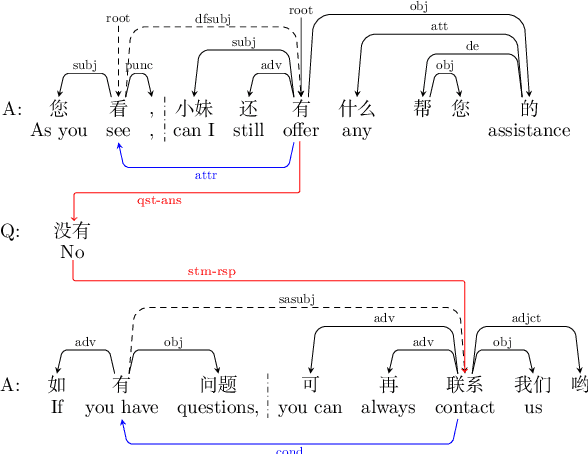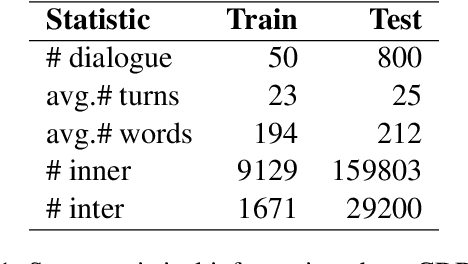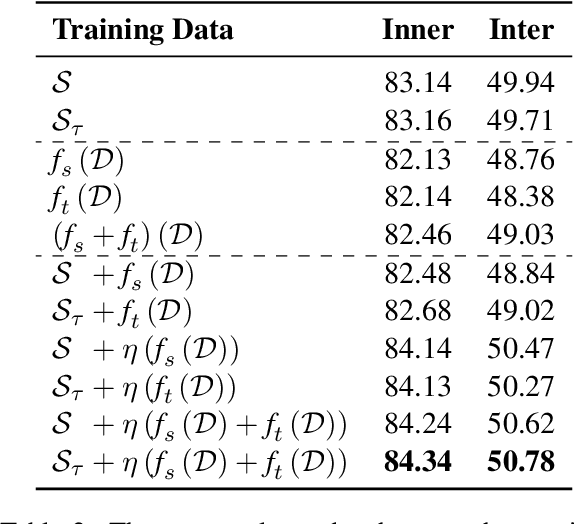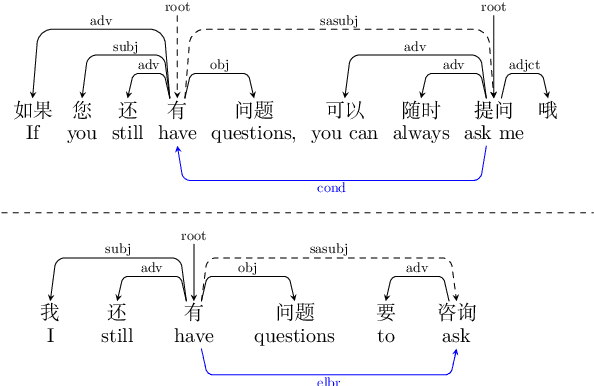A Pilot Study on Dialogue-Level Dependency Parsing for Chinese
Paper and Code
May 21, 2023



Dialogue-level dependency parsing has received insufficient attention, especially for Chinese. To this end, we draw on ideas from syntactic dependency and rhetorical structure theory (RST), developing a high-quality human-annotated corpus, which contains 850 dialogues and 199,803 dependencies. Considering that such tasks suffer from high annotation costs, we investigate zero-shot and few-shot scenarios. Based on an existing syntactic treebank, we adopt a signal-based method to transform seen syntactic dependencies into unseen ones between elementary discourse units (EDUs), where the signals are detected by masked language modeling. Besides, we apply single-view and multi-view data selection to access reliable pseudo-labeled instances. Experimental results show the effectiveness of these baselines. Moreover, we discuss several crucial points about our dataset and approach.
 Add to Chrome
Add to Chrome Add to Firefox
Add to Firefox Add to Edge
Add to Edge